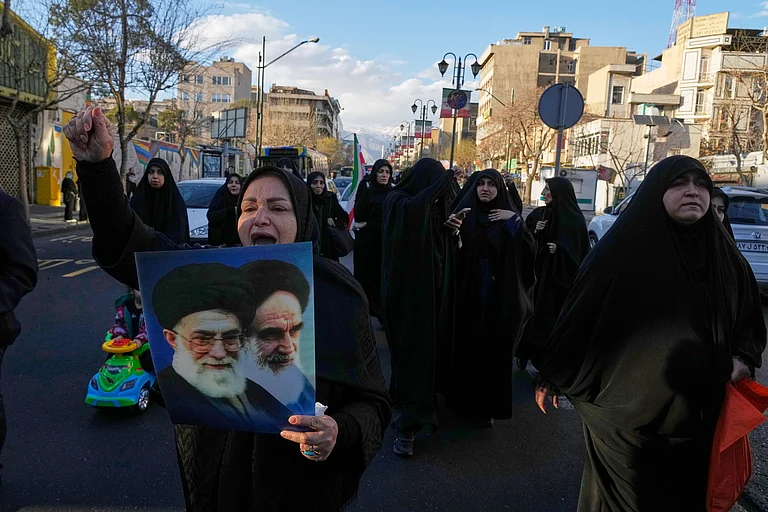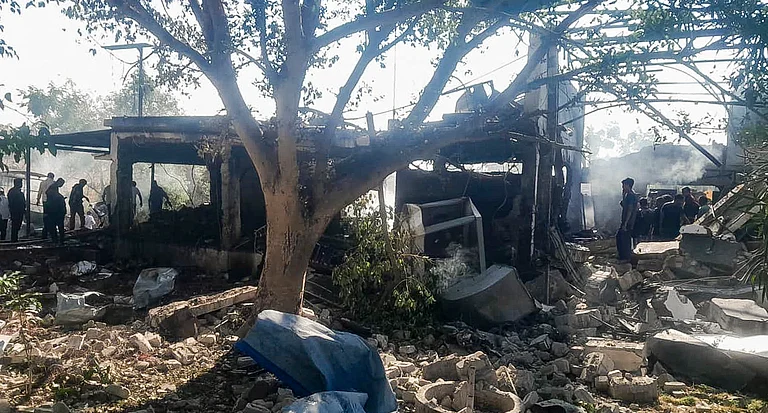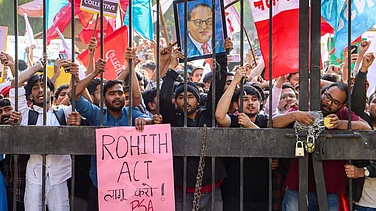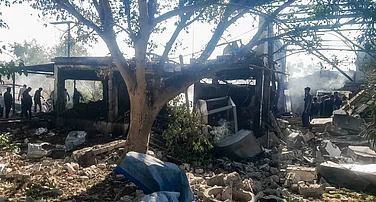RUPAN Deol Bajaj, 49, secretary to the Punjab government, was unusually tense on the morning of September 12. The Supreme Court was to decide whether supercop K.P.S. Gill could be prosecuted for a criminal assault on her dignity: slapping her posterior at a public gathering on July 18, 1988.
Since that mortifying evening seven years ago, she has fought long and hard. If the verdict went against her, she would quit the Indian Administrative Service. So naturally, there was a tremendous sense of relief and vindication when the ruling went in her favour, with the court directing the state to begin prosecution—even if it had taken the judiciary years to decide.
In her FIR on July 28, 1988, Bajaj alleged that the humiliating slap was the culmination of protracted harassment by Gill at a party attended by the Chandigarh elite. At one point, he even crooked an imperious finger at her and said: "You get up. Come with me.'' She complained to her host and subsequently, she approached the then Punjab chief secretary R.P. Ojha, governor S. S. Ray's secretary and finally, his advisor, J.F. Ribeiro. Attempts to broker a peace 10 days after the incident failed.
Bajaj perceived Gill as having acted out of "a sense of untramelled power and arrogance," secure in the knowledge that he could get away with a lot more than slapping a lady on the posterior. "It was not merely a case of eve-teasing, a lewd gesture by an anonymous person directed at an anonymous person. I was bound to run into Gill repeatedly since we move in the same professional circle,'' she says.
As for the legal issues involved, the Supreme Court's directive that Gill be prosecuted under Sections 354 and 509 of the Indian Penal Code could set a precedent for sexual harassment suits. In rejecting Gill's defence under Section 95—that the offence was so trivial that no reasonable person would press charges—-the court ruled that while there was no physical injury to the complainant's person, the affront to her dignity was a cognizable offence, informs Bajaj's counsel Indira Jaising.
Bajaj's fury at Gill and the entire Punjab administration which protected him and victimised her, still simmers. The Punjab administration and Chandigarh's elite closed ranks and Bajaj, apparently never particularly popular, found herself completely isolated. She was given two successive punishment postings, the first within a month of her filing a suit against Gill. Rather than accept the second—a post hitherto held by a deputy secretary and without the benefit of secretary, car or even telephone—she went on leave.
She maintains: "They (the state) should have initiated disciplinary proceedings against him on the grounds of moral turpitude or whatever." But the state did little more than slap Gill gently on the wrist. All Ray did was to debar Gill from attending parties in Chandigarh after 8.30 pm. An enraged Bajaj filed a plea before the chief judicial magistrate, but the high court quashed Bajaj's FIR. Down but not out, she filed a special leave petition before the Supreme Court in May 1989.
Behind the scenes, anti- and pro-Gill lob-bies are working overtime to influence Chief Minister Harcharan Singh Brar. Brar himself may have no great love for Gill but the latter's generally acknowledged role against militancy makes it that much more difficult for the state to act against him. While loyalists of the late Beant Singh are solidly behind Gill, a faction in the Congress advised that if the powerful DGP was to be cut to size, now was the time.
With the exit of Rajesh Pilot from the home ministry and the Supreme Court coming down hard on the Punjab police for the alleged excesses of the last five years, Gill has few friends at the Centre. The anti-Gill lobby in the IPS, which emerged in the wake of Beant Singh's assassination, have joined the bureaucracy in their criticism of the DGP's recent performance. All this is strictly subterranean, with no one except the maverick S.S. Mann openly demanding Gill's ouster.
The press stood solidly behind Gill during the episode. None of the five senior journalists present at the party reported the incident, which first appeared in a Bombay daily. The alleged involvement of Bajaj's husband was dredged up and Bajaj herself was portrayed as an eccentric. Gill was the naughty hero who had committed a trivial lapse but who ought to be pardoned on the grounds of state security. The fault perhaps lay less with Gill than with the milieu he represents, where the act of teasing a middle-aged woman after imbibing a few drinks is looked on with indulgence. It was after this incident that Gill won the Padma Shri.
Unruffled by the verdict, Gill was the picture of relaxation. On the day it was announced, he headed for Himachal Pradesh to oversee the building of his house. Back in Chandigarh a day later, he responded to queries with "no comment...the matter is sub judice''. He is not worried and sees no reason to curtail his socialising—indeed, he never did. Gill's advocate K.T.S. Tulsi's comment that "it is too early for Mrs Bajaj to rejoice'' rings true.
Gill's confidence is not unfounded, for it is evident that he still reigns supreme and witnesses are reluctant to come forward. "There is no question of going to court as witnesses. At the time (when the incident occurred) we gave a statement to the police without thinking. We refused to go to court then and even now, we will not,'' says Shireen Bijlani, wife of a Chandigarh-based industrialist, whose statement figures prominently in the FIR. Bajaj says fatalistically: "I can't blame anyone for not wanting to stand witness. After all, they are not particular friends. I hardly know them.''
If convicted, Gill could face imprisonment up to two years and/or a fine. Whatever the final outcome, the Supreme Court's verdict was perceived as heartening news for working women. "Sexual harassment is a human rights violation and should be treated as such,'' says activist Dr Jyotsna Chaterjee.


























